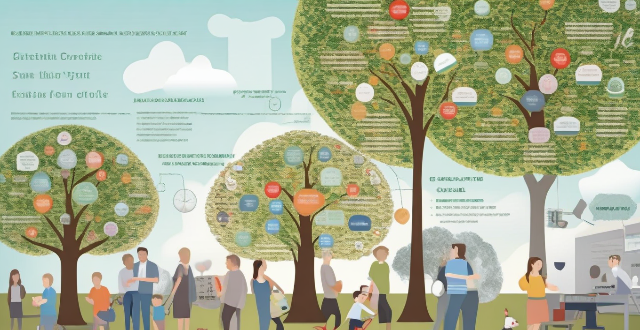International organizations play a critical role in addressing pressing global issues like climate change and poverty. They bring together various stakeholders to develop strategies, set goals, provide financial assistance, and foster cooperation. These efforts aim to mitigate the effects of climate change, reduce poverty levels, and promote sustainable development worldwide.

The Role of International Organizations in Addressing Climate Change and Poverty
International organizations play a crucial role in addressing climate change and poverty, two of the most pressing global issues of our time. These organizations bring together nations, governments, non-governmental organizations (NGOs), and other stakeholders to develop and implement strategies that aim to mitigate the effects of climate change and reduce poverty levels worldwide. In this response, we will explore the various ways in which international organizations contribute to these efforts.
Mitigating Climate Change
- Policy Development and Advocacy: International organizations like the United Nations Framework Convention on Climate Change (UNFCCC) serve as platforms for policy development and advocacy. They facilitate discussions among member states, leading to the creation of binding agreements such as the Paris Agreement. These agreements set targets for reducing greenhouse gas emissions and provide a framework for countries to take action.
- Research and Data Collection: Organizations like the Intergovernmental Panel on Climate Change (IPCC) conduct extensive research and collect data on climate change. Their reports inform policy decisions by providing scientific evidence on the impacts of climate change and potential solutions.
- Funding and Resource Allocation: International financial institutions and development banks, such as the World Bank and the Green Climate Fund, provide funding for climate change adaptation and mitigation projects. These resources help countries, particularly developing ones, to implement sustainable solutions and build resilience against climate impacts.
- Technology Transfer and Capacity Building: International organizations facilitate the transfer of clean energy technologies and knowledge to countries that lack the necessary infrastructure and expertise. This helps in decarbonizing economies and promoting sustainable development.
- Cooperation and Collaboration: By fostering cooperation among nations, international organizations encourage the sharing of best practices, experiences, and resources. This collaborative approach enhances the effectiveness of climate change initiatives globally.
Reducing Poverty
- Setting Global Goals: The Sustainable Development Goals (SDGs), established by the United Nations, include targets specifically aimed at eradicating extreme poverty and reducing poverty in all its dimensions. These goals guide national policies and international assistance programs.
- Providing Financial Assistance: International organizations offer financial support through grants, loans, and technical assistance to help impoverished countries develop their economies and improve the living standards of their populations. Examples include the International Monetary Fund (IMF) and the World Bank.
- Capacity Building and Education: Through capacity building programs, international organizations empower individuals and communities by offering education, training, and skills development. This enables people to engage in income-generating activities and participate more effectively in economic growth.
- Healthcare and Humanitarian Aid: International organizations play a vital role in providing healthcare services and humanitarian aid during crises. Efforts such as vaccination campaigns, disease control programs, and emergency relief operations directly contribute to reducing poverty by improving health outcomes and preventing further impoverishment due to illness or disaster.
- Promoting Trade and Economic Growth: International trade organizations, like the World Trade Organization (WTO), work towards liberalizing trade barriers, which can stimulate economic growth and reduce poverty. By facilitating equitable trade agreements, these organizations help developing countries access new markets and opportunities.
In conclusion, international organizations are instrumental in addressing climate change and poverty through various means, including policy development, research, funding, technology transfer, cooperation, setting global goals, providing financial assistance, capacity building, healthcare provision, and promoting trade. Their collective efforts aim to create a more sustainable and equitable world for all.